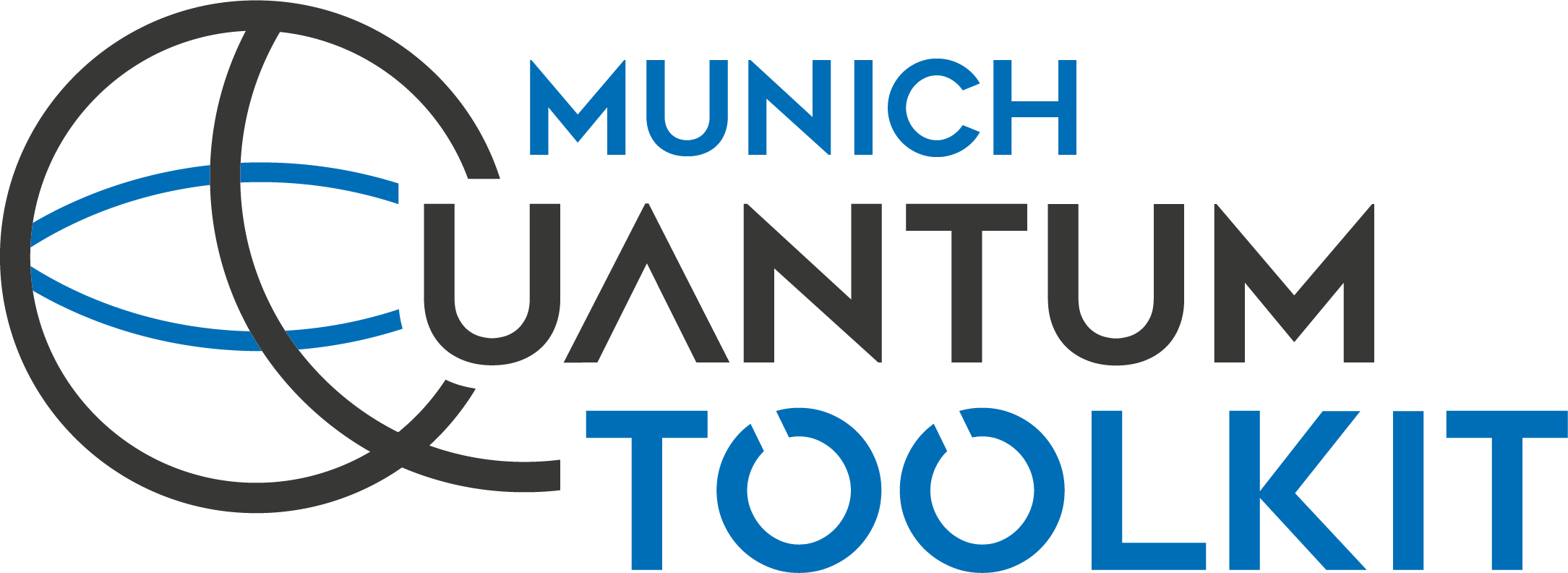This repository contains services for the PlanQK Platform based on the Munich Quantum Toolkit (MQT) that is developed by the Chair for Design Automation at the Technical University of Munich. Currently, the following services are available:
- MQT DDSIM: A Tool for Classical Quantum Circuit Simulation based on Decision Diagrams.
- MQT QMAP: A Tool for Quantum Circuit Mapping.
- MQT QCEC: A Tool for Quantum Circuit Equivalence Checking.
- MQT Bench: A tool for Benchmarking Software and Design Automation Tools for Quantum Computing.
For a full list of tools and libraries available as part of the MQT, please visit the MQT website.
Note
All services are still experimental and under development. Expect breaking changes.
The fist goal is to be able to run the src directory as a Python module with the code inside program.py.
We recommend building your service from within a dedicated and fresh Conda environment to install and track all required packages from the start.
For this reason, the template already contains an environment.yml file from which a fresh environment can be created:
HINT: As an alternative to Conda, you may use the
requirements.txtfile to create a virtual environment with the tooling of your choice.
conda env create -f environment.yml
conda activate mqt-<SERVICE_NAME>
python3 -m srcYou may utilize Docker to run your code locally and test your current implementation. In general, by following the next steps you replicate the steps done by the PlanQK platform, which is a way to verify your service in an early stage.
docker pull ghcr.io/planqk/job-template:latest-base-1.0.0
docker build -t mqt-<SERVICE_NAME> .
# or (for Apple M1 chips)
docker buildx build -o type=docker --platform "linux/amd64" --tag mqt-<SERVICE_NAME> .In case, you do not use any input data or parameters that need to be passed into the container, you may run the container with the following command:
docker run -it \
-e BASE64_ENCODED=false \
-e LOG_LEVEL=DEBUG \
mqt-<SERVICE_NAME>However, to pass the "data" and "params" attributes as JSON-serialized files into the container, you either mount it in the form of separate files (recommended) or pass it as environment variables (base64 encoded).
To use the data.json and params.json from the input directory, you could execute the following command:
PROJECT_ROOT=(`pwd`)
docker run -it \
-e BASE64_ENCODED=false \
-e LOG_LEVEL=DEBUG \
-v $PROJECT_ROOT/input:/var/input \
mqt-<SERVICE_NAME>If the service executed successfully, you should see something like Job:ResulsResponse: followed by the output you defined for your service.
Otherwise, if you see Job:ErrorResponse: Bad news, something went wrong.
However, the details of the response hopefully give you a clue what the problem was.
The Munich Quantum Toolkit has been supported by the European Research Council (ERC) under the European Union's Horizon 2020 research and innovation program (grant agreement No. 101001318), the Bavarian State Ministry for Science and Arts through the Distinguished Professorship Program, as well as the Munich Quantum Valley, which is supported by the Bavarian state government with funds from the Hightech Agenda Bayern Plus.

